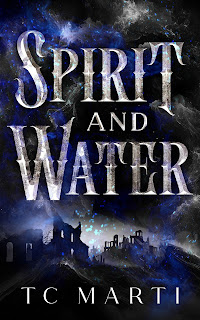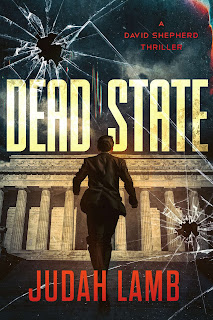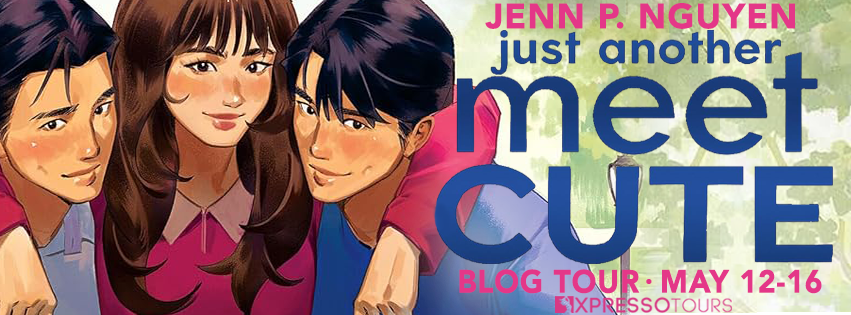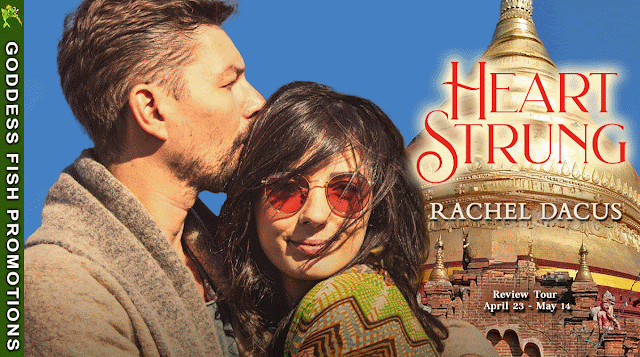I pressed it with all the strength I could bring to bear. She said the
pages of books were made from cotton and linen rags stamped into
pulp, then pressed into paper and hung to dry. I laughed at her for
telling such a lie because I thought maybe she was just like my father
who told tall tales to make me behave. Rows and rows of lines she
called words looked odd to me. Many times I searched hard within
every letter, every sound to find meaning. The letters cut my tongue
as thorns on a rose bush, each one sticking to me. I could not speak
the next letter until the one before it came unstuck. Soon after the
word was finally spoken, my lazy tongue quit my mouth.
The first line was, Bodies gliding on morning's cloak of dew, lit up
as iridescent insect wings they flew. When I came to the word iridescent,
Armande said to say it slowly, one letter at a time. She told
me it was from the word iris for the flower, and escent for colours
of the rainbow that change as a dragonfly in the sun. Finally, when
my tongue began working with me and worrying less, she asked me
to say other words like deliquescent, effervescence, and florescence.
These newfound words were as rare gems dug up by the wet nurse
solely for me. She wrote them out with big stokes that filled a whole
page. I rubbed my eyes to make the words go away, yet they only
stayed there waiting for me to say them.
well, and I learned first-hand about the miraculous effects of Armande's
milk on babies. Before, I was a mere servant watching from afar as the
wet nurse suckled. Then I was part of her life, holding and changing
babies, burping them, and rocking them to sleep. Armande cared for
three babies during this period yet not all at once. She would also tend
to others from time to time, reassuring worried mothers in soothing
tones as gentle and sweet as the milk itself. First there was Jacques
who she still cared for. His mother died in childbirth and Armande
stepped up to nurse him without a thought about payment. Caroline
came after, then Héloïse. The first time I watched from up close as
Jacques drank her milk was in the drawing room.
seat and worn arms while I sat on the sofa. Suddenly Jacques stopped sucking,
then gazed at me knowingly, his eyes full of light. In that instant, a slim ray
of sun gleamed through a crack, lighting up the darkness inside me.
My hands shook. Sweat ran down my cheeks and the back of my neck.
Just as she said her father sometimes described it, we were entering a new
age driven by light. And I, a peasant girl whose father and mother never
held a book, would be there to witness the change.
I became inspired when reading about the importance of wet nursing in 18th century France, that it was an industry at that time just like porcelain or textiles. I became fascinated by the idea that a woman would hand over her child for up to two years to be nursed by a stranger, and I was also enchanted by the belief at the time that the thoughts of the nurse or mother became impressed upon the child. I thought, what if this were true and the wet nurse read poetry and philosophy. Would the children become smart and wise beyond their years?
When or at what age did you know you wanted to be a writer?
I was about seven years old when I figured it out. I'd won a writing contest and had received lots of praise so I pretty much continued from then on.
What is the earliest age you remember reading your first book?
I don't exactly remember reading my first book, although I do remember my mother buying me lots of books and for the longest time, I couldn't read them. One day I was feeding lunch to my dolls and I ripped out pages from my books, tearing them up into pieces. Then I put them in bowls so my dolls could eat. Needless to say my mother was furious. I never did that again.
What genre of books do you enjoy reading?
I enjoy reading suspense, historical, contemporary and literary fiction. I like a good plot twist and really enjoy being taken on a journey. I want to learn things I didn't know before and be transported to another time and place.
What is your favorite book?
I have lots of favorite books yet perhaps my all-time favorite is Italo Calvino's Baron in the Trees. This Italian author lived in the 20th century, is considered a fabulist or neo-realist writer. Funnily enough his book takes place in the 18th century and involves a boy from a noble family who decides to live in the trees for the rest of his life and read books. Well, I thought this would be ideal of course! The other funny coincidence (or not) is that my novel talks a lot about books and reading, and celebrates, really, the joy of cracking open a book and becoming part of a story.
You know I think we all have a favorite author. Who is your favorite author and why?
My favorite author is Italo Calvino. I love how sparing he is with his prose, yet he's also poetic. I like his sense of humor and how his stories get me imagining all on my own. He plants the seed and the reader does the rest. It's a true gift to be able to do that.
If you could travel back in time here on earth to any place or time. Where would you go and why?
I would probably go to the 1920s. I love the fashions, the music and spirit of the time. I would love to dance the Charleston and the Foxtrot, and drink champagne from tall glasses.
When writing a book do you find that writing comes easy for you or is it a difficult task?
Sometimes it comes easily and sometimes it doesn't. If I start writing early in the morning then it usually doesn't take long before I'm in the flow. In the afternoon I usually have to force more.
Do you have any little fuzzy friends? Like a dog or a cat? Or any pets?
No, not now. I've had cats most of my adult life and think they're the best pet to have for a writer. I'm taking a cat break right now.
What is your "to die for", favorite food/foods to eat?
I love fresh french-fries; there's nothing like fried food really. I also love Indian food and Japanese. I could probably eat sushi every day.
Do you have any advice for anyone that would like to be an author?
Keep at it. Don't stop. Even when you feel you're not getting anywhere. It's important to just show up at your writing desk and see what comes. Don't wait for the muse; if you start writing she'll eventually arrive. And don't take no for an answer.


































































.jpg)











0 comments:
Post a Comment